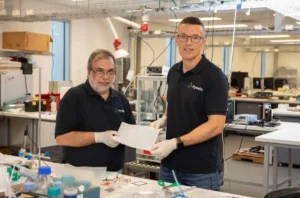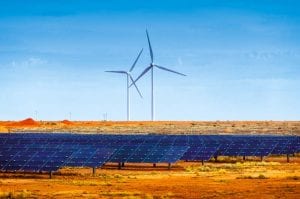Plans to develop a large-scale renewable hydrogen production, transportation and export hub in the New South Wales Hunter region have gained the backing of Japan-based global renewable energy developer Eurus Energy.
Energy Estate, which is leading the proposed $2 billion Hunter Hydrogen Network (H2N) said on Wednesday that Eurus had agreed to take an investment stake in the project, subject to foreign investment review board approval.
Plans for the H2N were unveiled in May last year, as a large-scale “green” hydrogen production and pipeline project that will supply low-cost hydrogen for domestic use and export and for the produciton of other derivatives, including green ammonia.
Energy Estate describes the proposed dedicated hydrogen pipeline as “backbone infrastructure” that will help position the Hunter Valley as Australia’s first “hydrogen valley,” and as a global superpower in the hydrogen economy.
Partners on the project already include AGL Energy, APA Group, and ITM Power – the latter the US developer of a one-gigawatt-a-year electrolyser manufacturing facility in Sheffield, South Yorkshire, that it is hoped could replicated in NSW.
Eurus Energy Group, an independent renewable energy power producer and developer, is jointly owned by Toyota Tsusho Corporation and the Tokyo Electric Power Company, two of Japan’s biggest global corporations.
In Australia, Eurus owns 120MW of operating wind energy assets, including a stake in the Kennedy Energy Park in north Queensland, which it developed in partnership with Windlab as one of the world’s first hybrid wind, solar and battery projects.
Elsewhere, the company is actively pursuing more than 4GW of renewable energy generation projects across 14 countries including Japan, Korea, USA, Chile and Europe.
Energy Estate said that on completion of the transaction, and subject to approvals, Eurus and Energy Estate would form the H2N Development Joint Venture to continue developing the Hunter Hydrogen Network.
“Our goal is to develop the skills, technology and knowhow in Australia and New Zealand to deliver to the rest of the world – creating long-term industry export opportunities beyond the production of hydrogen,” said Energy Estate’s Simon Currie on Wednesday.
“A good example of our approach is exploring the opportunities to foster a green hydrogen and e-fuels industry to decarbonise domestic demand and export green fuels to the world,” he said.
The NSW Hunter region, which remains a coal mining and generation centre for the state, is becoming increasingly crowded with major renewable energy, energy storage and green hydrogen proposals, as the state’s transition away from fossil fuels becomes more urgent.
Earlier this week, Australian renewables developer Maoneng unveiled new plans for a massive 400MW, four-hour battery, which the company hopes to build alongside a 550MW solar farm in the Upper Hunter region, north-west of Newcastle.
And Origin Energy has teamed up with Australia-based multi-national Orica in a recently announced bid to assess the viability of their own “Hunter Valley Hydrogen Hub,” which would produce green hydrogen from recycled water sources and renewable electricity, using a grid connected 55MW electrolyser.










